Partners in the Spotlight
Selected integrations
AXIS ACAP - Parquery in-camera
Fotokite - Parking & Traffic Surveys
Parquery works with ANY camera
Customer success story of Hasler Find out more
We meet Christof Hasler, the managing director of Hasler + Co AG, to discuss the challenges they face concerning parking in their day-to-day business and how Parquery’s cloud-based smart parking solution helps overcome those.
As we approach the Hasler Group’s headquarters in Winterthur, North-Eastern Switzerland, we make our way through the bustling parking lot that sets the scene for today’s interview. A variety of vehicles of all sizes and shapes, both commercial trucks and vans as well as private passenger cars, are parked in front of one of Switzerland’s largest retailers for the construction, trades, and craft sectors.

Christof Hasler,
CEO of Hasler + Co AG

The Hasler Group is one of Parquery’s longest-standing customers. For over three years, Parquery’s smart parking solution has continually monitored two of Hasler’s parking lots and provided understanding of occupancy and utilization patterns.
In this article, Parquery gives their customer the floor: As an expert on their business case, Christof Hasler has invaluable first-hand experience and insight on how smart parking serves the competitive retail sector.
The Hasler Group’s history originated in 1853 in the city center of Winterthur with a staff of four. Over the past 160 years, Hasler has grown into a retail group specialized in tools and hardware products that employ over 240 people in Switzerland.
In the past 25 years, Hasler has already had to move their business location twice, in part due to the increasingly problematic parking situation.
Whenever real estate is converted or reconstructed, the city administration reassesses the parking situation. [The new regulations that came into effect in September 2020 correlate the number of parking spots to the store area and curtail them further.]
Hasler would only have a maximum of 23 parking spaces for 120 employees at the current location under a new assessment, and the approved customer parking spaces could arithmetically only be occupied for 16 minutes per customer on the basis of the daily number of clients - according to the Parquery statistics, however, the average stay is 20 minutes.
This must be a serious issue for you, given that vehicles of professional customers are often so large that they occupy several parking spaces. How important is parking for Hasler?
About 80% of our customers are tradespeople, construction business, carpenters, metal workers, they cannot come by bus. And private customers also arrive primarily by car [to the commercial center]. You see relatively few people carrying machinery, a cabinet, or a TV by bus.
Not finding a parking space is very upsetting for customers, especially those with commercial vehicles who come when they have an emergency, [and who are under time pressure during working hours]. The bottom line is: a parking space must be managed to be optimally occupied.
Parquery detects any kind of vehicle Learn how
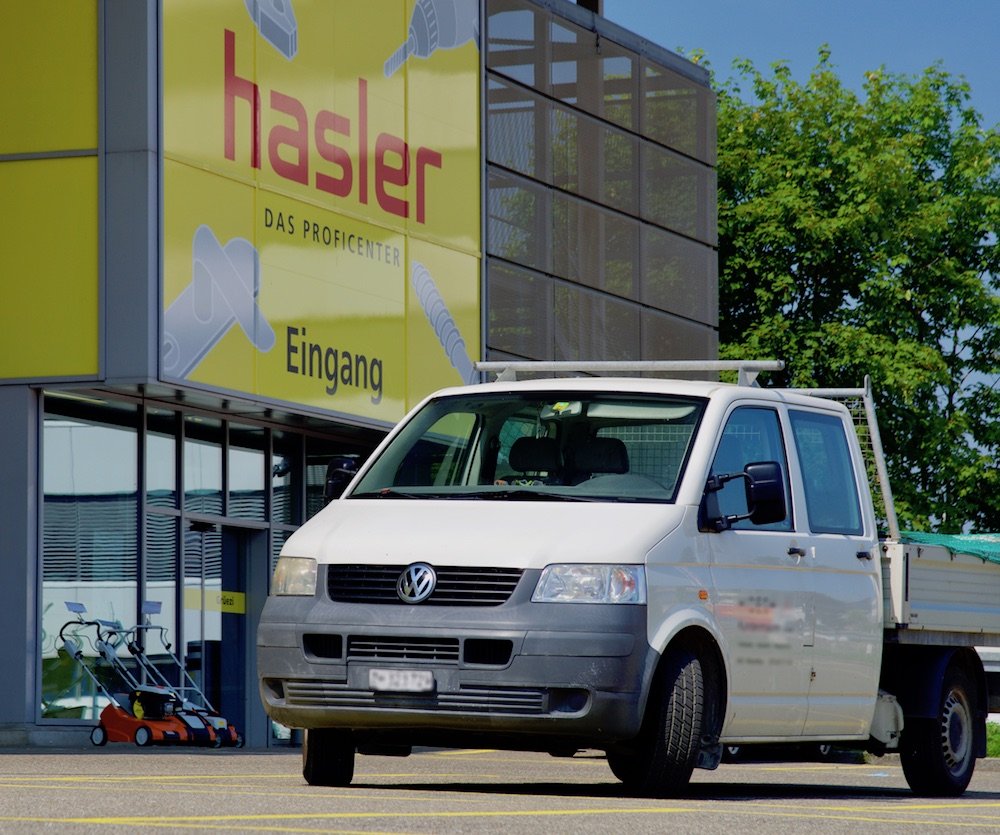
By July 2021, you have been using Parquery’s smart parking solution for over three years. What’s your verdict?
We are very satisfied with the solution. [Parquery’s system based on camera images and Artificial Intelligence provides] an ingenious tool that stands the test of time and that I recommend. It is exciting [to see] what can be concluded from images: it delivers accurate occupancy analysis and offers extensive evaluation options.
With Parquery's system, we have precise knowledge of the occupancy. This helps us to look for suitable solutions and make decisions.
It can be utilized exceptionally well, with reasonable costs and manageable technical requirements. That is what is so fascinating about the Parquery solution.
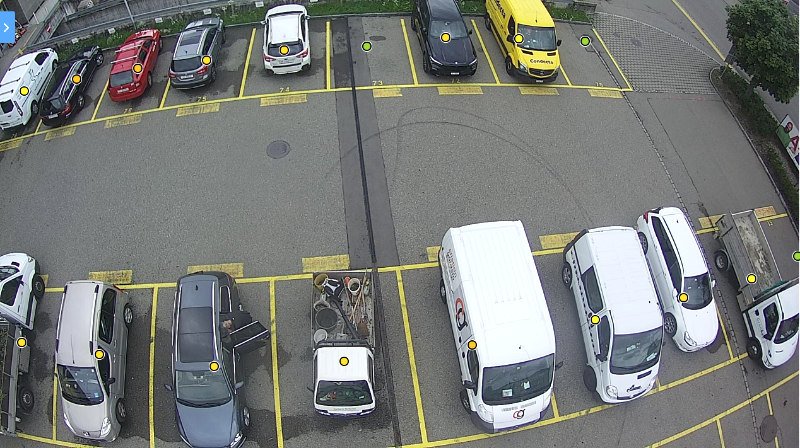
What triggered your decision to adopt smart parking?
The plan to construct a new shopping center next door tipped the scales. We were concerned that due to the insufficient parking projected, their customers would use our parking lot in the future.
So we wanted to know how busy our parking lots are: When is it at its peak, when does it get crowded? When is there free capacity?
It was interesting to see how the occupancy developed [before and after the construction of the neighboring shopping center]. The [smart parking] numbers proved that our parking lots – primarily Decathlon’s [which are adjacent to the new building and managed by Hasler] – have been significantly busier since the stores opened than before, especially on Saturdays for 2-3 hours.
One would expect parking occupancy to be related to sales figures. However, we see that Decathlon’s increase in sales does not match the rise in parking occupancy. Therefore we must assume that the customers from the neighboring property leave their cars in our parking lots.
The data also demonstrates that measures taken by the city of Winterthur to reduce car traffic do not lead to the desired effect. [With a reduction of parking spaces] the city administration wants to achieve a shift to public transport. However, this is not feasible for all business cases. Parking space reduction does not mean that fewer people take the car, but the same number come - and they then park at ours.
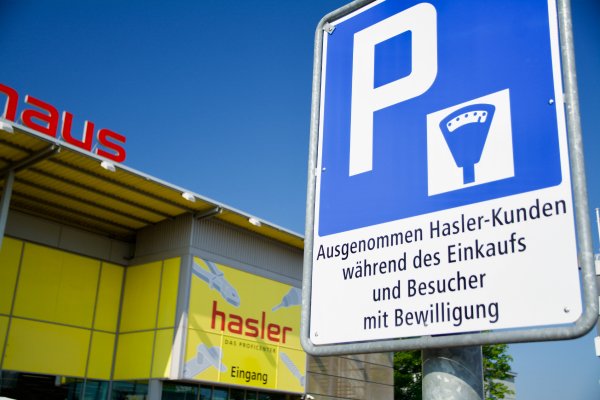
What would you recommend retailers who think about adopting smart parking?
[Retailers often have the issue that] they do not have enough parking space. Parking spaces are a scarce and precious commodity that we must manage optimally. Parquery is a good tool to analyze occupancy - an ingenious solution that works.
Parquery’s solution can be adopted with minimal effort, cost, and technology. It doesn’t need ground sensors and whatnot. It is easy to install, and you can also expand it. It’s modular. Tomorrow, I can say, now I’ll add another parking lot, and get an accurate analysis.
[With smart parking] you have plain facts, and you do not just rely on intuition or a subjective impression, e.g., built on complaints when a customer has once not found a parking space. With Parquery’s system, we can check and verify the occupancy.
In summary: you get an accurate analysis of the occupancy with justifiable technical and financial effort. And then you know what you’re talking about.
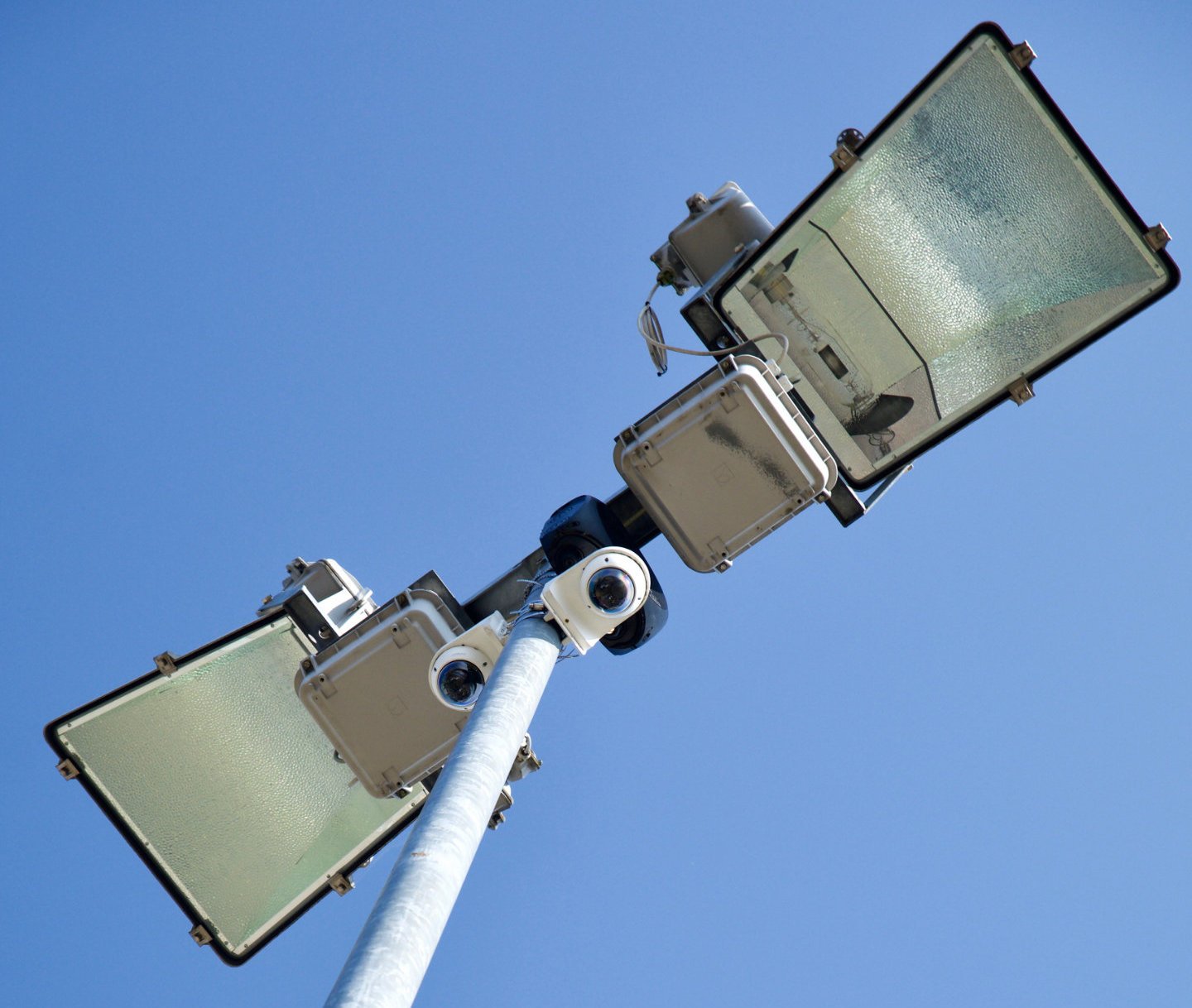
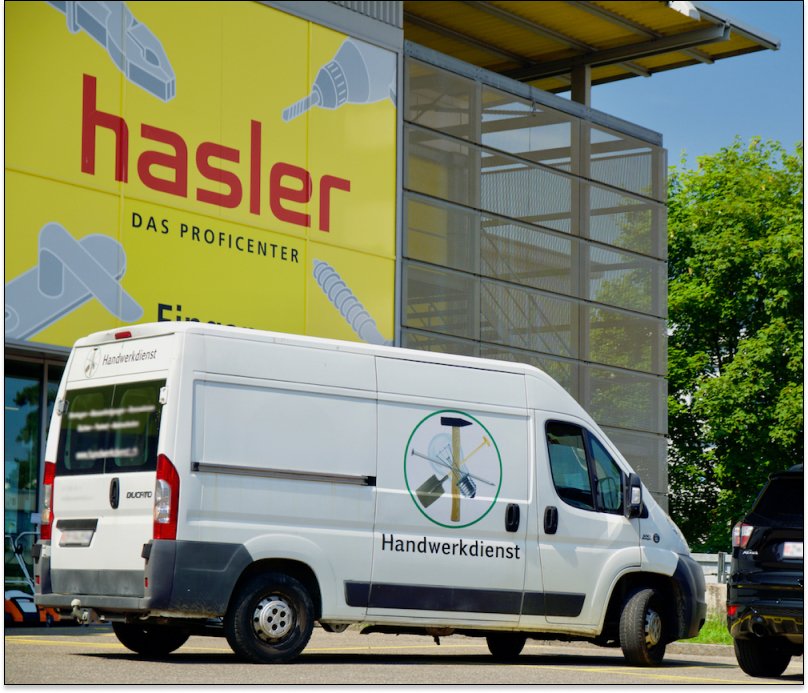
We would like to thank Christof Hasler for the interview and for sharing his insights on smart parking.
Find out more about Hasler + CO AG, or visit their LinkedIn profile.
Hasler + Co AG's customer success story Read on
How can you adopt smart parking?